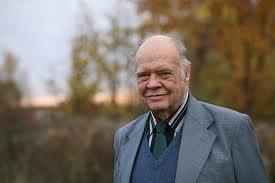E. Gene Smith, 10 August 1936 – December 16, 2010
August 17, 2011 7:47 pm UTC

NY Times Obituary
Smith was born in Ogden, Utah to a traditional Mormon family. He studied at a variety of institutions of higher education in the U.S.: Adelphi College, Hobart College, University of Utah, and the University of Washington in Seattle.
At Seattle, he was able to study with Dezhung Rinpoche and members of the Sakya Phuntso Phodrang family who had been brought to Seattle under the auspices of the Rockefeller Foundation grant to the Far Eastern and Russian Institute. He studied Tibetan culture and Buddhism with Dezhung Rinpoche from 1960 to 1964 and spent the summer of 1962 traveling to the other Rockefeller centers in Europe to meet with other Tibetan savants.
In 1964 he completed his Ph.D. qualifying exams and traveled to Leiden for advanced studies in Sanskrit and Pali. In 1965 he went to India under a Foreign Area Fellowship Program (Ford Foundation) grant to study with living exponents of all of the Tibetan Buddhist and Bönpo traditions.
He began his studies with Geshe Lobsang Lungtok (Ganden Changtse), Drukpa Thoosay Rinpoche and Khenpo Noryang, and H.H. Dilgo Khyentse Rinpoche. He decided to remain in India to continue serious studies of Tibetan Buddhism and culture. He traveled extensively in the borderlands of India and Nepal. In 1968 he joined the Library of Congress New Delhi Field Office. He then began a project which was to last over the next two and a half decades, the reprinting of the Tibetan books which had been brought by the exile community or were with members of the Tibetan-speaking communities in Sikkim, Bhutan, India, and Nepal.